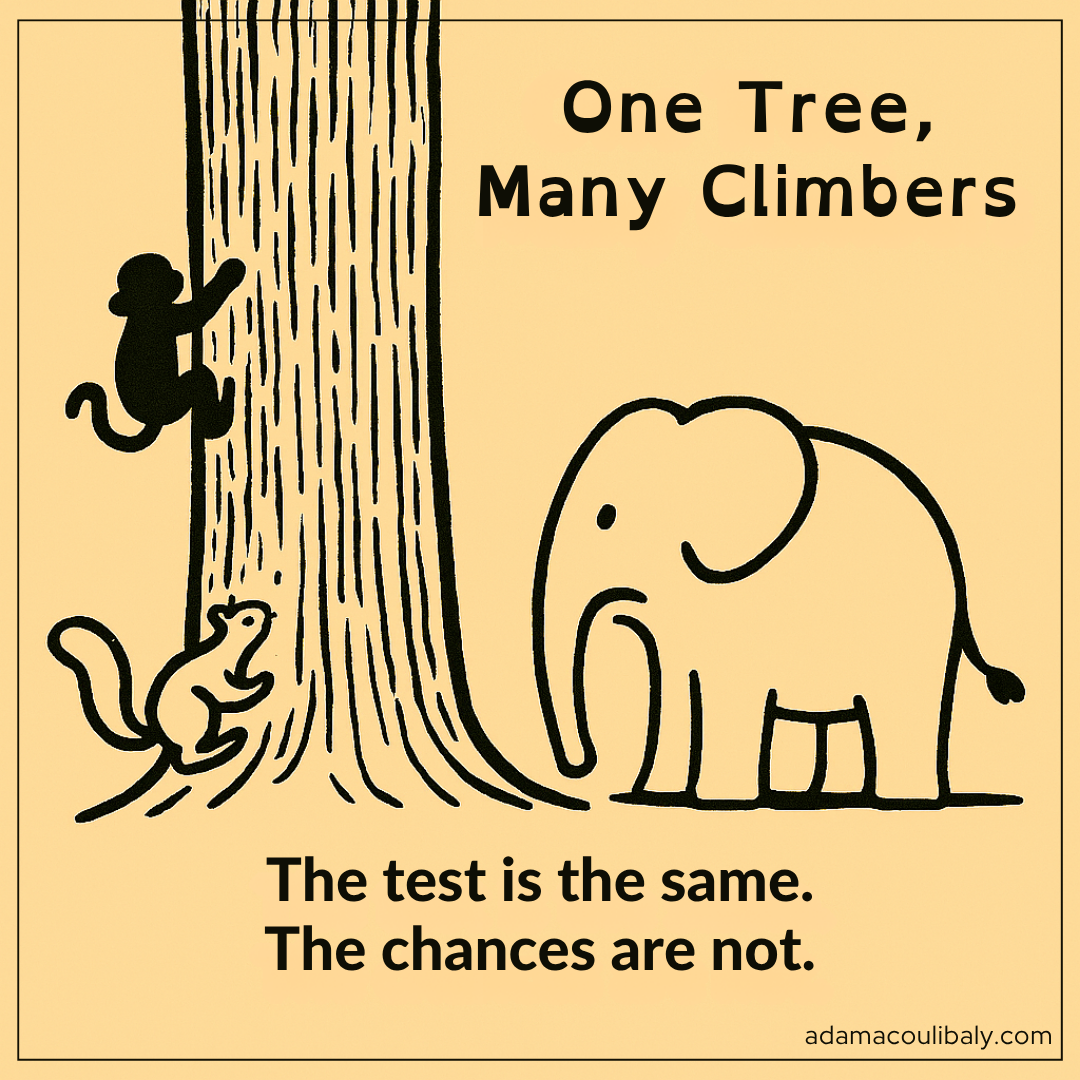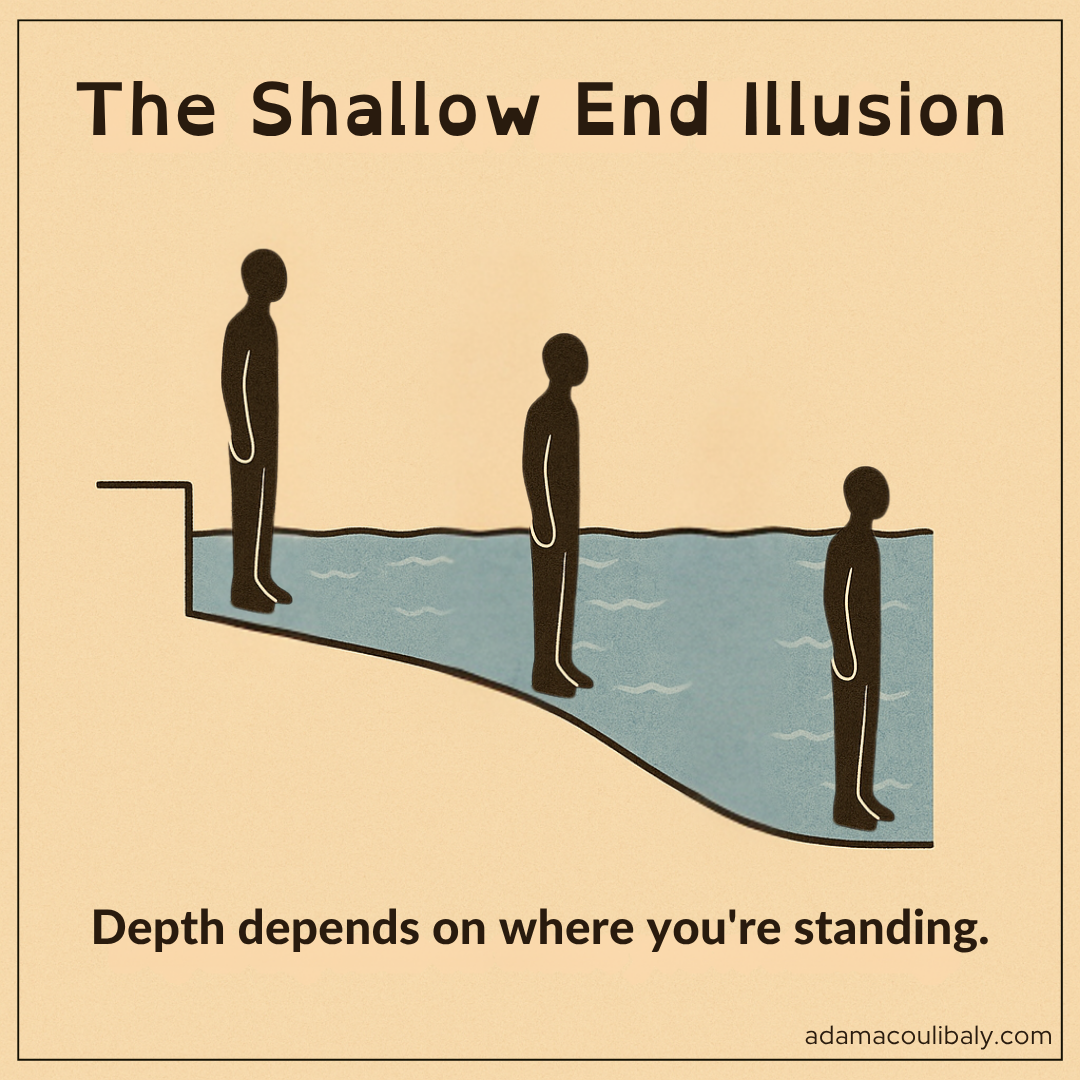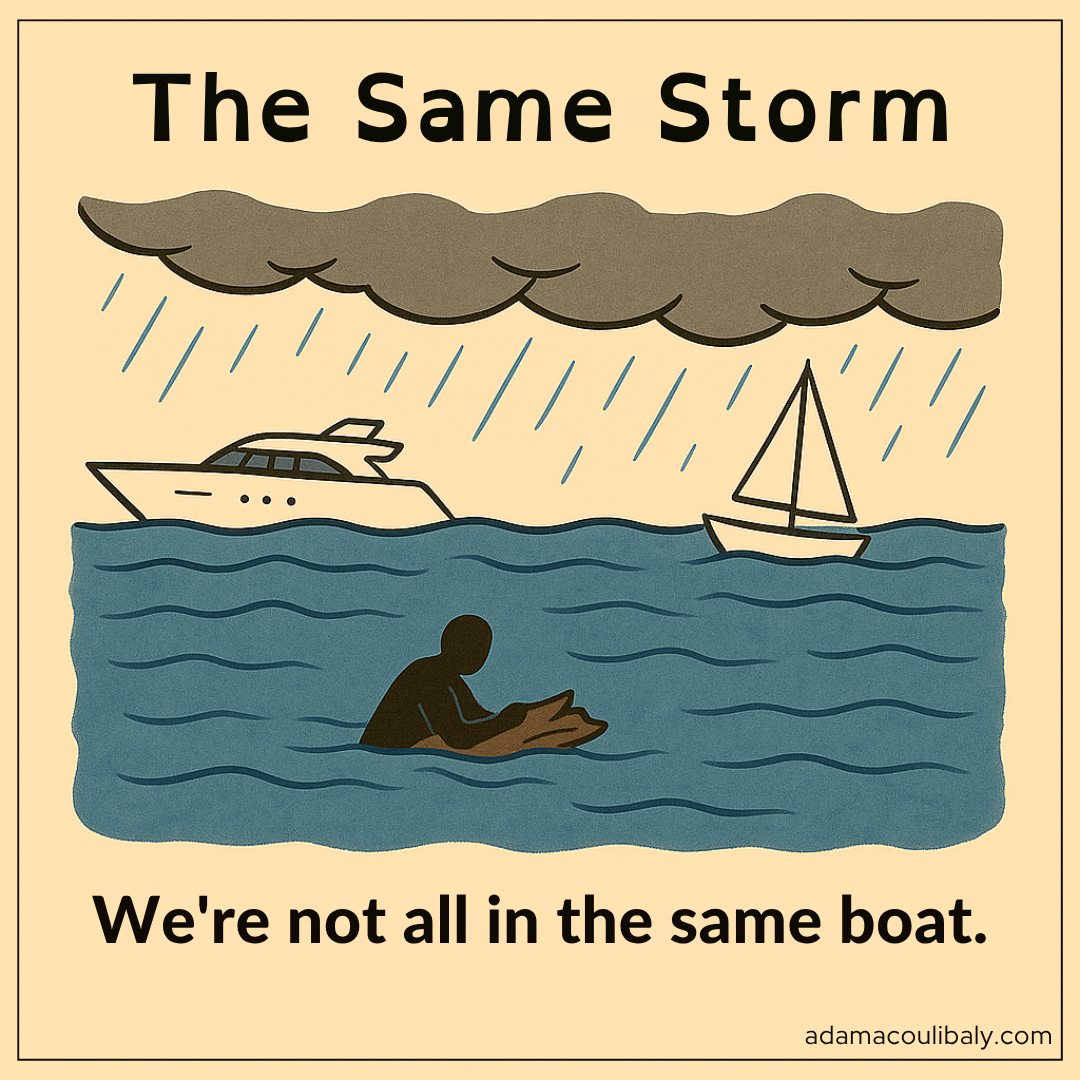When Fairness Isn’t Equal
PositiveMinds | The Wisdom Journal | Issue 007
Why the same challenge can still feel unjust
We often equate fairness with sameness. One rule. One test. One pool. However, beneath the appearance of equal conditions lies a web of unequal access, disparate resources, and unspoken constraints. This week, Tilé invited us to look again — to notice not just what people are going through, but what they’re going through it with.
These reflections revealed a difficult truth: experience is not shaped solely by effort. It's shaped by where we begin, what we carry, and what we’re navigating beneath the surface. While equality aims for uniformity, equity asks deeper questions. Not “Is the challenge the same?” but “Was the starting line ever shared?”
Each visual metaphor reveals how easily we overlook the slope under someone else’s feet. How do we call people fragile without knowing what they’re carrying? How sameness can become silence — when we stop seeing who’s sinking and who’s sailing.
Because fairness isn’t always fair, and empathy doesn’t start with agreement. It starts with imagination.
💧 The Weight of One Drop
What floods an ant may barely wet an elephant.
A single drop is barely noticeable to some. But for others, it’s a tidal wave. This metaphor reminds us that difficulty is not an objective reality. It depends on who is carrying it. We often measure other people’s struggles through our own strength, assuming, “If I can handle it, they should too.”
But strength is relative. Circumstances vary. Trauma lingers. What feels minor to one person may be deeply destabilising to another. When we ignore scale, we miss the opportunity for compassion. We diminish experience. And we unintentionally shame those who are doing their best with less.
True empathy means pausing before we judge. It means asking not, “Is this heavy?” but “Heavy for whom?” Because even one drop, in the wrong context, can leave lasting marks.
🌳 One Tree, Many Climbers
The test is the same. The chances are not.
Imagine a monkey, a squirrel, and an elephant — all asked to climb the same tree. The monkey excels. The squirrel does well. The elephant fails. The problem? The test was never designed for the elephant. Yet we call it fair.
We see this in education, hiring, leadership, and global systems — where design advantages some while quietly excluding others. We celebrate those who climb easily, without asking who had to build a ladder just to begin. We confuse performance with potential, and ease with excellence.
This isn’t a call to lower standards. It’s a call to notice the scaffolding. To recognise that true equity isn’t about equal hurdles, but meaningful access. Because when the test ignores differences, it becomes a barrier, not a bridge.
🏊 The Shallow End Illusion
Depth depends on where you're standing.
In the same pool, one person stands ankle-deep, another chest-deep, and someone else struggles to breathe. From above, the water seems equal. But the gradient changes everything. So does where you entered, how tall you are, and what you’ve learned to swim with.
We often underestimate the difficulty others face simply because we’re in the shallow end of the pool. From our spot, things seem manageable — even easy. However, we often forget how slope, history, and hidden burdens can shift the experience entirely.
Perspective isn’t everything. But without it, compassion falters. Real support asks: Where are they standing? How deep is it for them? And what does it take to simply stay afloat?
⛴ The Same Storm
We’re not all in the same boat.
The storm hits. Rain pours. Thunder echoes. But the boats are not the same. One person rides it out in a yacht. Another in a sailboat. A third clings to driftwood. When we say “We’re all going through the same thing,” we often erase the different levels of risk — and privilege — within that storm.
Struggle doesn’t look the same for everyone. Some have buffers. Others have nothing but strength and endurance. It’s not just the weather that shapes survival. It’s the vessel — built over years, handed down or denied, reinforced or left to rot.
Solidarity doesn’t mean assuming sameness. It means recognising disparity — and taking responsibility for it. Because empathy without nuance can become neglect. And noticing who’s sinking is the first act of justice.
What Equality Doesn’t Show
This week’s journey with Tilé reminded us that equality is a beginning, not a guarantee. Fairness must account for difference — not to divide, but to see clearly. Without that clarity, well-meaning systems become blind. Kindness becomes patronising. And sameness becomes silence.
So we ask a better question: What does it take to truly stand with others? Not just when they resemble us, but when their struggle is foreign — and their weight invisible.
Because justice doesn’t live in the rulebook, it lives in the awareness of who’s holding what.
“Don’t measure the climb. Understand the cliff.”
Read more reflections in The Wisdom Journal or explore the full Visual Wisdom collection.






